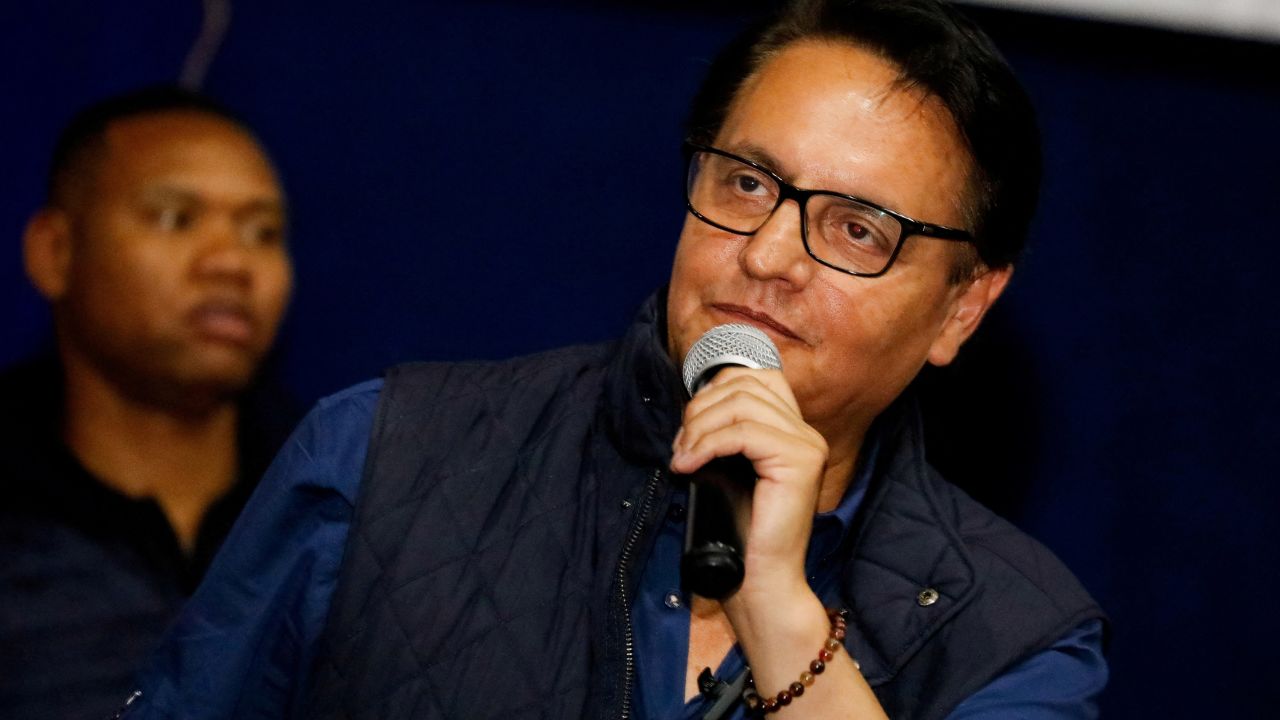The assassination of Ecuadorian presidential candidate Fernando Villavicencio marks a “disturbing moment” for the region and democracy, his successor and former running mate Andrea González Náder has in an exclusive interview.
“You never have enough time to process something so shocking and so sobering as the assassination of a presidential candidate (on) such a level of violence and so soon – so close to the presidential elections,” Náder Rafael Romo in an interview in the capital Quito on Saturday.
“This is a disturbing moment for the whole region and for the world’s democracy,” she said.
Náder was named as the new presidential candidate for Villavicencio’s Movimiento Construye political party following his death during a campaign rally on Wednesday as violence and crime escalates in the South American country.
She was seen wearing a bulletproof vest at a candidacy acceptance ceremony in the capital on Friday.
“Náder was chosen by Fernando Villavicencio and the Movimiento Construye as the designated successor to step in as president in the event of his absence,” the party said in a statement published online on Saturday.
Villavicencio, 59, an anti-corruption campaigner and lawmaker, was outspoken about violence caused by drug trafficking in Ecuador. His campaign had promised a crackdown on crime and corruption that gripped the country in recent years.
His killing came 10 days before the first round of the presidential elections, scheduled to take place on August 20.
His widow Veronica Sarauz expressed disagreement with Náder’s appointment in the wake of her husband’s passing and blamed the state for his murder, demanding answers as to why it happened.
“The state was in charge of Fernando’s security. The state is directly responsible for the murder of my husband. They did not protect him as they should have protected him,” Sarauz told a news conference on Saturday.
The 59-year-old was laid to rest in a private ceremony at the Monteolivo cemetery in northern Quito on Friday.
“The state still has to give many answers about everything that happened. His personal guards did not do their job,” she said.

Villavicencio’s assassination prompted an outpouring of condemnation from inside Ecuador and around the world.
The suspected shooter died in police custody following an exchange of fire with security personnel, authorities said.
Six others – all Colombian nationals – have also been arrested in connection with the killing, believed to be members of organized criminal groups.
Precautions
While authorities have not yet announced any confirmed links between gangs to Villavicencio’s assassination, the Ecuadorian Army Command announced the dispatch and deployment of 4,000 personnel – 2,000 military members and 2,000 police officers – to the Zonal 8 Detention Center in Guayas province “to establish control over weapons, ammunition and explosives within the prison.”
A high profile prisoner José Adolfo Macías Villamar, more popularly known by his alias “Fito” and jailed after being convicted of drug trafficking – is currently incarcerated in the prison, sparking concerns by the authorities.
Villavicencio – also a former journalist – had said in a televised interview on July 31 that he had been threatened by Macías and warned against continuing with his campaign against gang violence for the leadership.
Ecuadorian President Guillermo Lasso announced Saturday that Macías “and other dangerous prisoners” would be relocated to the La Roca maximum security prison after drugs, weapons, ammunition and explosives were found.
Images released by the armed forces on Saturday showed Macías being restrained and searched inside the facility. Macías as well as his gang members have not yet publicly commented on the assassination.













No comments: